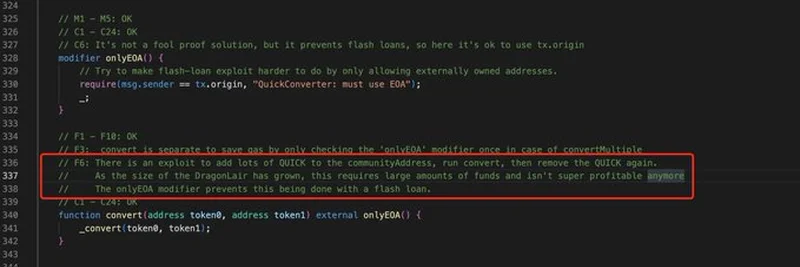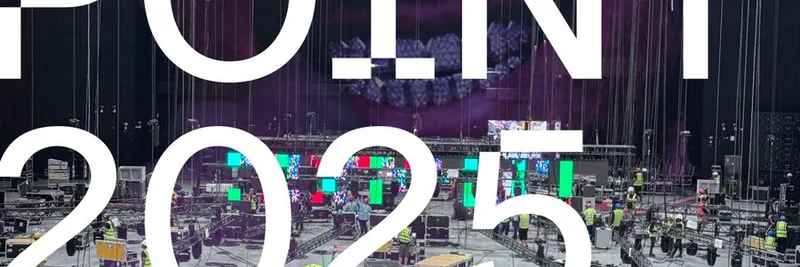Hey there, crypto enthusiasts! If you're into the world of decentralized finance (DeFi) or meme tokens, you’ve probably heard of Quickswap, a leading decentralized exchange (DEX) on the Polygon network. Recently, the security experts at BlockSec dropped a bombshell on X, pointing out a potential vulnerability in Quickswap’s smart contract code. Let’s break it down in simple terms and see what it means for the DeFi community.
What’s the Buzz About?
On July 3, 2025, BlockSec shared a detailed post on X (check it out here) that included a code snippet revealing a flaw. The image they posted shows a section of Quickswap’s smart contract with comments highlighting an exploit. Specifically, the issue lies in a function called convertMultiple, which could allow someone to add a large amount of QUICK tokens to the communityAddress, run the conversion, and then remove the tokens again. This sneaky maneuver, dubbed an exploit, was once a goldmine for attackers using flash loans—short-term loans in the crypto world that don’t require collateral.
The good news? The onlyEOA modifier (short for "externally owned account") has been added to prevent this from happening with flash loans. This means only real user accounts can trigger the function, making it harder for automated attacks. However, BlockSec notes that as the "Dragonlair" (a part of the contract) has grown, this exploit isn’t as profitable anymore, requiring massive funds to pull off.
Why Should You Care?
For those new to this, smart contracts are like digital agreements on the blockchain that automatically execute actions when conditions are met. But if there’s a loophole, hackers can exploit it to drain funds or manipulate the system. Quickswap, being a big player in DeFi, regularly audits its contracts to stay secure, but this revelation shows that even top platforms aren’t immune to scrutiny.
This vulnerability ties into the broader world of meme tokens and DeFi, where fast transactions and low fees (like those on Polygon) attract users and investors. If you’re holding or trading meme tokens on Quickswap, understanding these security updates can help you make smarter decisions. Plus, it’s a reminder of why tools like BlockSec’s Phalcon and MetaSleuth are crucial for spotting risks early.
What’s Being Done?
The code snippet suggests Quickswap is already addressing the issue by separating the convert function and adding the onlyEOA modifier. This tweak makes it tougher for attackers to use flash loans, a common tactic in DeFi exploits. BlockSec’s alert is a heads-up to the community, and it’s likely Quickswap will roll out further fixes or audits to patch this up.
The Bigger Picture for Meme Token Fans
At Meme Insider, we’re all about keeping you in the loop on how tech developments affect meme tokens and the broader crypto space. This Quickswap incident isn’t directly about meme coins like Dogecoin or Shiba Inu, but it highlights the importance of security in platforms where meme tokens are traded. A secure DEX means a safer place to swap your favorite tokens, so keep an eye on updates from Quickswap and Polygon.
Final Thoughts
The BlockSec reveal is a wake-up call for the DeFi world, showing that even established projects like Quickswap need constant vigilance. While the exploit isn’t a major threat anymore due to its reduced profitability, it’s a great example of how the crypto community works together to identify and fix issues. Stay tuned to Meme Insider for more updates, and feel free to dive into the code yourself if you’re feeling adventurous!
Got questions or want us to dig deeper? Drop a comment below or reach out—we’re here to help you navigate the wild world of blockchain!


